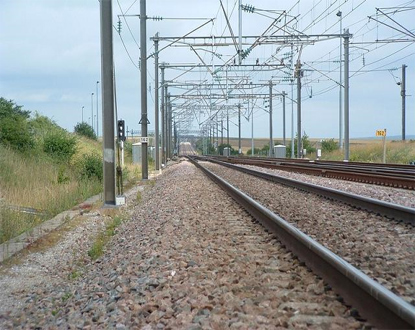The report from the Mobility 21 commission on transportation infrastructure to be developed in the coming decades, which is to be submitted to the government this Thursday, recommends moving away from a focus on high-speed trains (TGV) in favor of a different transportation policy centered on proximity.
The commission’s work, led by Philippe Duron, a Socialist Party deputy from Calvados, was to prioritize among the 70 projects of the national transportation infrastructure scheme (Snit), established under the Fillon government for all transportation infrastructures.
After eight months of consultation, the report prioritizes local service over high-speed travel. Only the construction of the high-speed line (LGV) Bordeaux-Toulouse is maintained before 2030, in the best-case scenario.
In its work, the commission particularly emphasizes the need to invest in major “rail hubs,” intended to relieve congestion in numerous stations, such as Lyon’s and Paris’s Saint-Lazare, Part-Dieu in Lyon, or Saint-Charles in Marseille.
The Snit proposed a catalog of 70 projects, requiring an investment of 245 billion euros over 25 years.
“It is a report about mobility and major transportation infrastructure as a whole,” clarified its chairman Philippe Duron.
The report then proposes two scenarios. The first envisions funding for France’s transport infrastructure financing agency (AFITF) with eight to ten billion euros to be invested by 2030 to finance a limited number of major projects.
The second, “more ambitious,” scenario involves between 28 and 30 billion euros.
The report is to be presented in July to the parliamentary committees of the National Assembly and the Senate. The commission recommends reassessing the transportation policy every five years in its observations.
As widely anticipated, the route for a high-speed rail line (LGV) potentially passing through Nice by 2030 has been excluded from the conclusions of the Mobility 21 Commission’s report.
However, the underground crossing of the Marseille Saint-Charles station and the Huveaune valley were included for an amount of 2.5 billion euros.
Reactions have been swift.
The first is from Jean Icart, a municipal councilor heavily involved in this matter: “A serious financial and political mistake. I have been participating in the public debate around the LGV Côte d’Azur since 2005. The PACA region ranks behind Île-de-France in terms of rail network usage, yet it has the fewest rail lines. The Nice section with Nice-Cannes-Le Muy is likely to be postponed until at least 2030-2050. The Commission’s decision condemns the Alpes-Maritimes to isolation and pushes us, as politicians, to consider future prospects more with Italy than France.” The “Mobility 21” Commission on transportation infrastructure projects, appointed by the government in October 2012, will deliver its report to the government concerning the prioritization of major transportation infrastructure projects.
A similar sentiment is expressed by Bernard Kleynhoff, President of the Nice Côte d’Azur Chamber of Commerce and Industry:
“If the proposed phasing, limited to Marseille’s crossing, were to be confirmed and endorsed by the government, it would condemn the Côte d’Azur to survive with the same infrastructure from 1990 up until 2040.
It is not conceivable that the Côte d’Azur, a major international center for France, should once again be left out of this project, which would have heavy consequences in terms of competitiveness and employment.
The saturation of road, rail, and eventually airport networks will impact the daily commutes of the people of the Côte d’Azur, as well as visitors from around the world who are clients throughout the year for the Côte d’Azur and France.
In this context, the Nice Côte d’Azur CCI and its partners, UPE06, professional and labor unions, business clubs, etc., have gathered the support of local residents with more than 20,000 signatures in total.
I refuse this catastrophic scenario: the lack of connection to the Italian network and to make round trips to Marseille in a day would weigh heavily on the attractiveness and competitiveness of businesses and therefore employment.”


